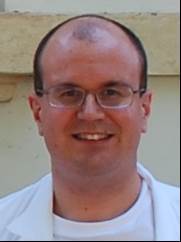Studying at the University of Verona
Here you can find information on the organisational aspects of the Programme, lecture timetables, learning activities and useful contact details for your time at the University, from enrolment to graduation.
Academic calendar
The academic calendar shows the deadlines and scheduled events that are relevant to students, teaching and technical-administrative staff of the University. Public holidays and University closures are also indicated. The academic year normally begins on 1 October each year and ends on 30 September of the following year.
Course calendar
The Academic Calendar sets out the degree programme lecture and exam timetables, as well as the relevant university closure dates..
| Period | From | To |
|---|---|---|
| INF VI - 1° anno 1° sem | Oct 3, 2017 | Dec 21, 2017 |
| INF VI - 2° anno 1° sem | Oct 3, 2017 | Dec 21, 2017 |
| INF VI - 3° anno 1° sem | Oct 16, 2017 | Dec 21, 2017 |
| INF VI - 1° anno 2° sem | Feb 1, 2018 | Mar 29, 2018 |
| INF VI - 3° anno 2° sem | Feb 1, 2018 | Mar 27, 2018 |
| INF VI - 2° anno 2° sem | Apr 23, 2018 | Jun 22, 2018 |
| Session | From | To |
|---|---|---|
| INF VI- sessione invernale 1-2-3 anno | Jan 8, 2018 | Jan 31, 2018 |
| INF VI- sessione estiva 3 anno (1 parte) | Apr 3, 2018 | Apr 18, 2018 |
| INF VI- sessione estiva 1 anno (1 parte) | Apr 5, 2018 | Apr 19, 2018 |
| INF VI- sessione estiva 2 anno | Jul 2, 2018 | Jul 31, 2018 |
| INF VI- sessione estiva 1 anno (2 parte) | Jul 12, 2018 | Jul 31, 2018 |
| INF VI- sessione estiva 3 anno (2 parte) | Jul 18, 2018 | Jul 31, 2018 |
| INF VI- sessione autunnale 1-2-3 anno | Sep 3, 2018 | Sep 28, 2018 |
| Session | From | To |
|---|---|---|
| 1^ SESSIONE | Oct 1, 2018 | Nov 30, 2018 |
| 2^ SESSIONE | Mar 1, 2019 | Apr 30, 2019 |
| Period | From | To |
|---|---|---|
| All Saints Day | Nov 1, 2017 | Nov 1, 2017 |
| Festa Immacolata Concezione | Dec 8, 2017 | Dec 8, 2017 |
| Vacanze natalizie | Dec 22, 2017 | Jan 7, 2018 |
| Easter break | Mar 30, 2018 | Apr 3, 2018 |
| Republic Day | Jun 2, 2018 | Jun 2, 2018 |
| VI Festa S. Patrono | Sep 8, 2018 | Sep 8, 2018 |
| Description | Period | From | To |
|---|---|---|---|
| INF VI 2° anno 1^ esp | INF VI 2° anno 1^ esp | Feb 1, 2018 | Mar 11, 2018 |
| INF VI 2° anno 2^ esp | INF VI 2° anno 2^ esp | Mar 16, 2018 | Apr 22, 2018 |
| INF VI 3° anno 1^ esp | INF VI 3° anno 1^ esp | Apr 19, 2018 | Jun 2, 2018 |
| INF VI 1° anno 1^ esp | INF VI 1° anno 1^ esp | Apr 23, 2018 | May 27, 2018 |
| INF VI 1° anno 2^ esp | INF VI 1° anno 2^ esp | Jun 4, 2018 | Jul 8, 2018 |
| INF VI 3° anno 2^ esp | INF VI 3° anno 2^ esp | Jun 8, 2018 | Jul 22, 2018 |
| INF VI 3° anno 3^ esp | INF VI 3° anno 3^ esp | Sep 1, 2018 | Oct 19, 2018 |
| INF VI 2° anno 3^ esp | INF VI 2° anno 3^ esp | Sep 3, 2018 | Oct 12, 2018 |
Exam calendar
Exam dates and rounds are managed by the relevant Medicine Teaching and Student Services Unit.
To view all the exam sessions available, please use the Exam dashboard on ESSE3.
If you forgot your login details or have problems logging in, please contact the relevant IT HelpDesk, or check the login details recovery web page.
Should you have any doubts or questions, please check the Enrollment FAQs
Academic staff
 maribedin@libero.it
maribedin@libero.it
Carbone Silvia
Cunico Laura
 laura.cunico@univr.it
laura.cunico@univr.it
 chiara.gnata@libero.it
chiara.gnata@libero.it
 jessica.longhini@univr.it
jessica.longhini@univr.it
 massimo.manfridi@univr.it
massimo.manfridi@univr.it
 loredana.pancheri@univr.it
loredana.pancheri@univr.it
 rafaella.visona@univr.it
rafaella.visona@univr.it
Study Plan
The Study Plan includes all modules, teaching and learning activities that each student will need to undertake during their time at the University.
Please select your Study Plan based on your enrollment year.
1° Year
| Modules | Credits | TAF | SSD |
|---|
Professional Laboratories (1st year)
2° Year activated in the A.Y. 2018/2019
| Modules | Credits | TAF | SSD |
|---|
Professional Laboratories (2nd year)
3° Year activated in the A.Y. 2019/2020
| Modules | Credits | TAF | SSD |
|---|
Professional Laboratories (3rd year)
| Modules | Credits | TAF | SSD |
|---|
Professional Laboratories (1st year)
| Modules | Credits | TAF | SSD |
|---|
Professional Laboratories (2nd year)
| Modules | Credits | TAF | SSD |
|---|
Professional Laboratories (3rd year)
Legend | Type of training activity (TTA)
TAF (Type of Educational Activity) All courses and activities are classified into different types of educational activities, indicated by a letter.
Relationship in nursing care (2018/2019)
Teaching code
4S000096
Credits
5
Coordinator
Laura Cunico
Language
Italian
The teaching is organized as follows:
PRINCIPI E TECNICHE DELLA RELAZIONE ASSISTENZIALE
Credits
2
Period
INF VI - 2° anno 1° sem
Location
VICENZA
Academic staff
Laura Cunico
Learning outcomes
------------------------
MM: PRINCIPI E TECNICHE DELLA RELAZIONE ASSISTENZIALE
------------------------
The course introduces the student to a comprehensive understanding of the psychological development of the complexity of the factors that interact with the patient's needs expressed; also, introduces the founding principles of the caring relationship, techniques and management strategies of effective communication. Learning Outcome The teaching contributes to achieving the following learning outcomes: Use appropriate communication skills (verbal, non-verbal) with patients of all ages and their families in the care process and / or other healthcare professionals; Know the founding principles of the caring relationship, techniques and management strategies of effective communication; Understand the relationship dynamics, the defense reactions in the process of adaptation of people in situations of psychological distress, social and physical suffering.
------------------------
MM: EDUCAZIONE TERAPEUTICA
------------------------
The teaching introduces the student to a global vision of the person’s psychological development in his complexity, factors which interact and the comprehension of a help request’s necessities expressed, considering life development’ steps, skills and required adjustments in the various evolutional stage; it also introduces the student to the fundamental helpful relationship’s precepts, to the techniques and strategies needed for an efficient communication’s management.
------------------------
MM: PSICOLOGIA CLINICA
------------------------
Clinical Psychology module introduces the student to an overall psychological development of the individual in the complexity of factors that interact to define the self and outlines the development stages of the life cicle. We analyze the defense mechanisms and how they are used, and how it develops according to Bowlby's attachment. Both analyses the relationship operator and patient through the concept of transfer and against trasfer, and emotinal intelloigenge. Considering the response to the disease by the patient and his relatives, you define the ripe and unripe defense mechanisms. It explain the concept of Death through different eras and phases of dying according to Kubler Ross, you analyze the mourning and its processing. Humanization concept.
Program
------------------------
MM: PRINCIPI E TECNICHE DELLA RELAZIONE ASSISTENZIALE
------------------------
PERCEPTION, PROCESS OF INTERPERSONAL COMMUNICATION, LANGUAGE Interpersonal perception and social communication The filters of perception, the reality is a construction interpersonal perception process The reality and its representations The two structures of language (deep and shallow) The VAK representational systems The massage of the distortion: the distortion arc HUMAN COMMUNICATION The communication process: the elements of the process Linear theory of communication Systemic theory of communication (features) The axioms of human communication of Watzlawick verbal communication (connotative language and denotative) non-verbal communication (gaze, gestures, posture, facial expressions (recall the emotions), para-verbal communication (the role of the voice, voice empathetic and unpleasant voice, vocals) Proxemics: the distance in the social relationship The context of meanings matrix MODELS OF CARE RELATIONSHIP The paradigm of Carl Rogers; principles: non-directivity, the centrality of the person, respect, positive and unconditional acceptance, congruence, authenticity, empathy Disease and illness Empathy, characteristics, its declination in the caring relationship; the Bonino Coco model of empathy and Tani (levels) The instruments of the care relationship: The agenda of the patient to explore the subjectivity (illness) The Calibration Method - Trace - Guide (CRG) as an effective approach in the interaction with the patient communication techniques (below) EFFECTIVE COMMUNICATION TECHNIQUES logical levels of thought, the use of thou killing words and attitudes that do not facilitate communication and understanding of: stereotyped phrases (cliché), judgments, unsolicited advice, change the subject, prejudice, medical jargon, communicative infantilization kissing words verbal techniques: open questions directives, no directives, focused, closed questions, reformulate, reflect, legitimize, comments empathetic, recapitulation; paraverbal techniques (continued): echo, silence, critical listening, empathic listening, vocalizations, of assent sentences ... Touch in nursing care (recommendations) Communication with the aggressive person (talk down techniques) Communication with the person with sensory impairment (blind, deaf, aphasic) The communication with the person in a state of environmental deprivation SOCIAL SKILLS AND THE ROLE OF PROFESSIONAL RELATIONSHIP The privacy and confidentiality in the professional relationship Build a relationship of trust The right distance
------------------------
MM: EDUCAZIONE TERAPEUTICA
------------------------
Methodology in therapeutic education Educative projection’s steps: educative needs’ analyses, educative diagnosis , objectives and learnings, surgery’s organization, evaluation Educative relations’ facilitating precepts and techniques aimed to support, inform and train the patient to comprehend right lifestyle and to manage the therapeutic treatements
------------------------
MM: PSICOLOGIA CLINICA
------------------------
- The development of person's psychological -The stages of the life cycle -Personality concept, attachment and affection - The defense mechanisms -Reactions to disease, defense strategies - Stress' concept, eustress, anxiety -coping strategies adjustment - Family's reaction to disease - Transfert and controtrasfert, and emotional intelligence - The Death in the modern societies - The mourning and its processing, phases of dying according to Kubler Ross - Humanization concept.
Bibliography
| Author | Title | Publishing house | Year | ISBN | Notes |
|---|---|---|---|---|---|
| Saiani, L., Brugnolli, A. | Trattato di cure infermieristiche (Edizione 3) | Idelson-Gnocchi | 2020 | 978-88-7947-576-1 | |
| Saiani L, Brugnolli A | Trattato Cure Infermieristiche (Edizione 3) | Idelson Gnocchi | 2020 |
Examination Methods
------------------------
MM: PRINCIPI E TECNICHE DELLA RELAZIONE ASSISTENZIALE
------------------------
WRITTEN EXAMINATION: multiple choice questions, short open-ended questions, analysis and interpretation of a relational case, nurse-patient dialogue text.
------------------------
MM: EDUCAZIONE TERAPEUTICA
------------------------
Writing Test
------------------------
MM: PSICOLOGIA CLINICA
------------------------
Writing test
Career prospects
Module/Programme news
News for students
There you will find information, resources and services useful during your time at the University (Student’s exam record, your study plan on ESSE3, Distance Learning courses, university email account, office forms, administrative procedures, etc.). You can log into MyUnivr with your GIA login details: only in this way will you be able to receive notification of all the notices from your teachers and your secretariat via email and soon also via the Univr app.
Gestione carriere
Orario lezioni
Si invitano gli studenti a prendere visione dei possibili aggiornamenti.
Indicazioni per l'iscrizione alla pagina moodle degli insegnamenti per il 1° anno
Si pubblica la programmazione annuale dell'attività didattica e tirocinio per l'anno accademico 2023-2024
AGGIORNAMENTO 25 MARZO 2024 Calendario lezioni 1°A. 2° semestre A.A. 2023/2024
AGGIORNAMENTO 15 APRILE 2024 Calendario lezioni 3° anno 2° semestre A.A 2023/2024
AGGIORNAMENTO 23 APRILE 2024 Calendario lezioni 2° anno 2° semestre 2023/2024
Documents
| Title | Info File |
|---|---|
|
|
pdf, it, 70 KB, 15/04/24 |
|
|
pdf, it, 60 KB, 24/04/24 |
|
|
pdf, it, 49 KB, 25/03/24 |
|
|
pdf, it, 528 KB, 13/07/23 |
|
|
pdf, it, 8849 KB, 13/10/22 |
Guida ai programmi degli insegnamenti
Guida ai programmi degli insegnamenti
Documents
| Title | Info File |
|---|---|
|
|
pdf, it, 1594 KB, 12/12/22 |
|
|
pdf, it, 1310 KB, 02/09/21 |
Graduation
Documents
| Title | Info File |
|---|---|
|
|
pdf, it, 242 KB, 19/01/24 |
|
|
pdf, it, 80 KB, 06/04/24 |
|
|
pdf, it, 43 KB, 06/04/24 |
|
|
pdf, it, 44 KB, 09/04/24 |
|
|
pdf, it, 148 KB, 06/04/24 |
|
|
pdf, it, 108 KB, 06/04/24 |
|
|
pdf, it, 115 KB, 06/04/24 |
|
|
pdf, it, 1487 KB, 18/02/22 |
|
|
pdf, it, 437 KB, 22/03/24 |
|
|
pdf, it, 957 KB, 22/03/24 |
|
|
pdf, it, 424 KB, 19/01/24 |
Linee guida per riconoscimento cfu
Lo studente che intende chiedere il riconoscimento di moduli o insegnamenti pregressi dovrà presentare domanda, entro il 30 novembre dell’anno accademico in corso, seguendo le indicazioni indicate al link seguente: https://www.univr.it/it/i-nostri-servizi/segreterie-studenti/gestione-carriere-studenti-medicina-e-chirurgia/riconoscimento-crediti-acquisiti-da-una-carriera-pregressa-medicina
Documents
| Title | Info File |
|---|---|
|
|
pdf, it, 295 KB, 09/11/21 |
Appelli d'esame
AGGIORNAMENTO 11 MARZO calendario appelli d'esame di APRILE 2024 per il 1° Anno
AGGIORNAMENTO 4 MARZO calendario appelli d'esame di MAGGIO 2024 per il 3° Anno
Documents
| Title | Info File |
|---|---|
|
|
pdf, it, 190 KB, 11/03/24 |
|
|
pdf, it, 194 KB, 04/03/24 |
|
|
pdf, it, 196 KB, 11/01/24 |
Student login and resources
Attività didattiche regime part-time
Modalità di richiesta
La domanda di iscrizione part-time può essere presentata all'inizio di ogni anno accademico e comunque entro il 30 novembre di ogni anno. Entro lo stesso termine, se necessario, lo studente potrà richiedere di tornare al regime full-time. Al link seguente la pagina del servizio https://www.univr.it/it/i-nostri-servizi/segreterie-studenti/flessibilita-nella-frequenza-dei-corsi/possibilita-di-iscrizione-part-time-e-ripristino-full-time
Una volta inviata la domanda, lo studente concorda in via preventiva con il Coordinatore della didattica professionale (CDP), il piano di studi che intende perseguire nel periodo di part-time compilando il modulo in allegato
Documents
| Title | Info File |
|---|---|
|
|
octet-stream, it, 1309 KB, 21/10/22 |

 +39 045 8128275
+39 045 8128275























